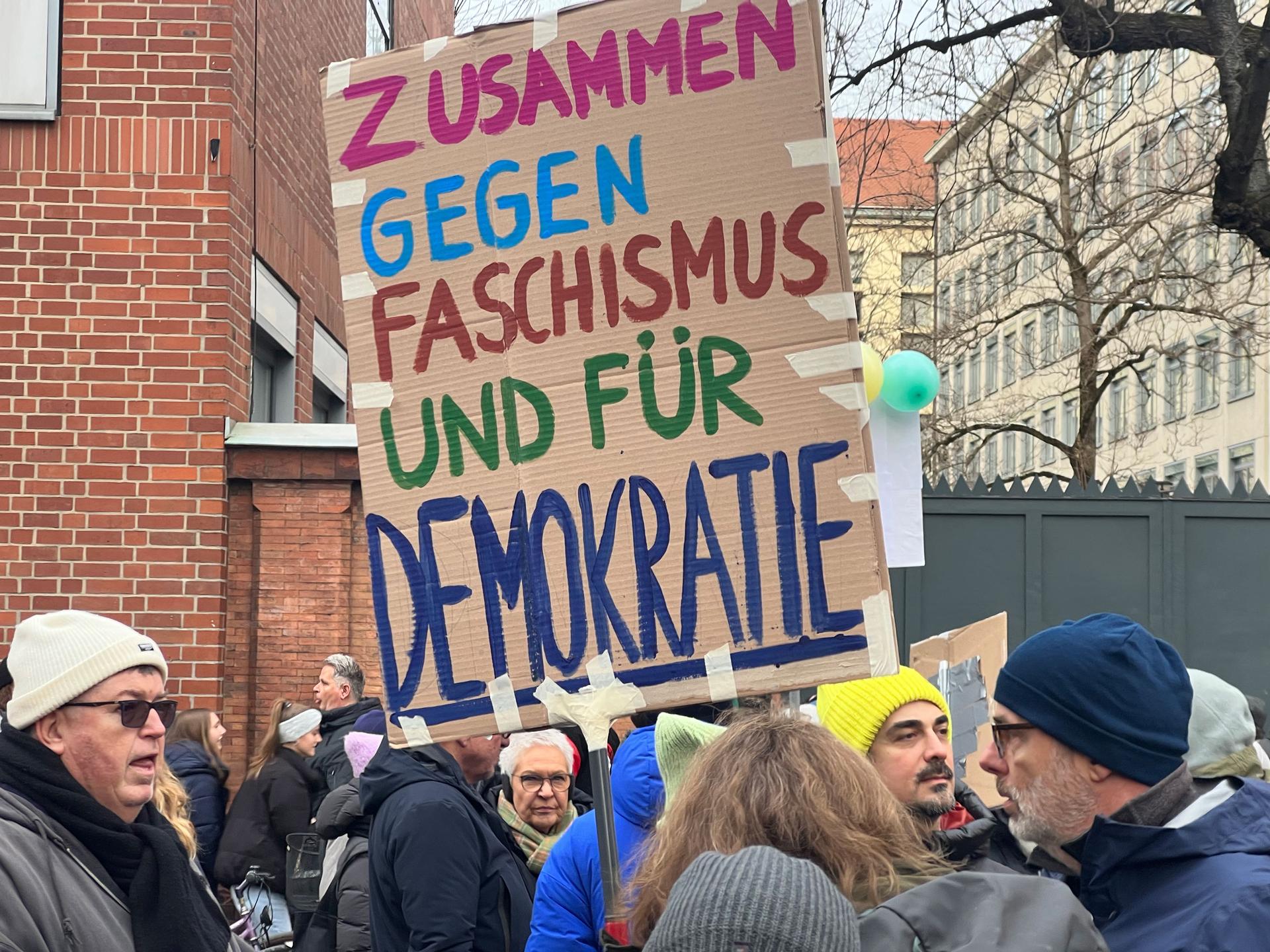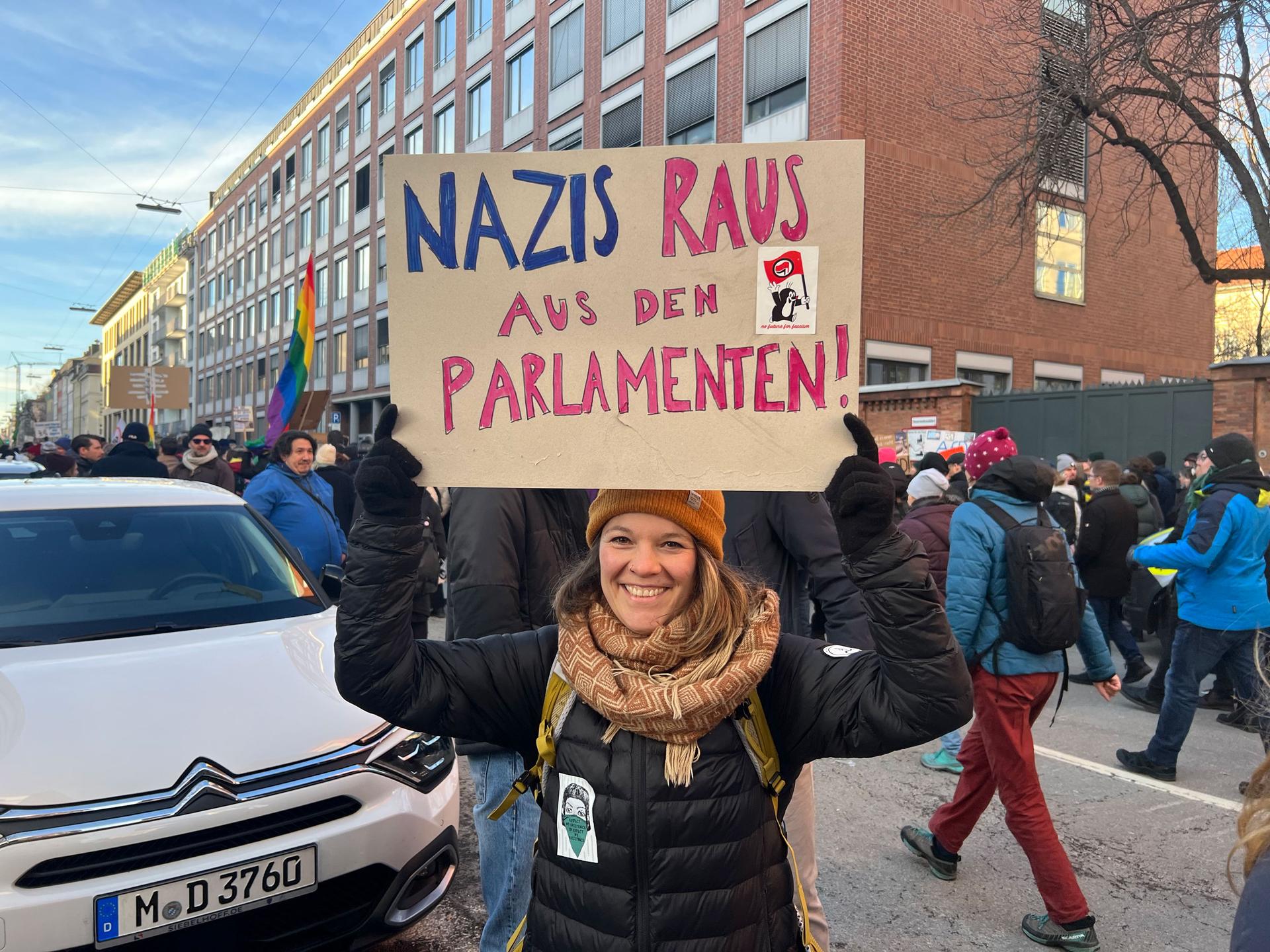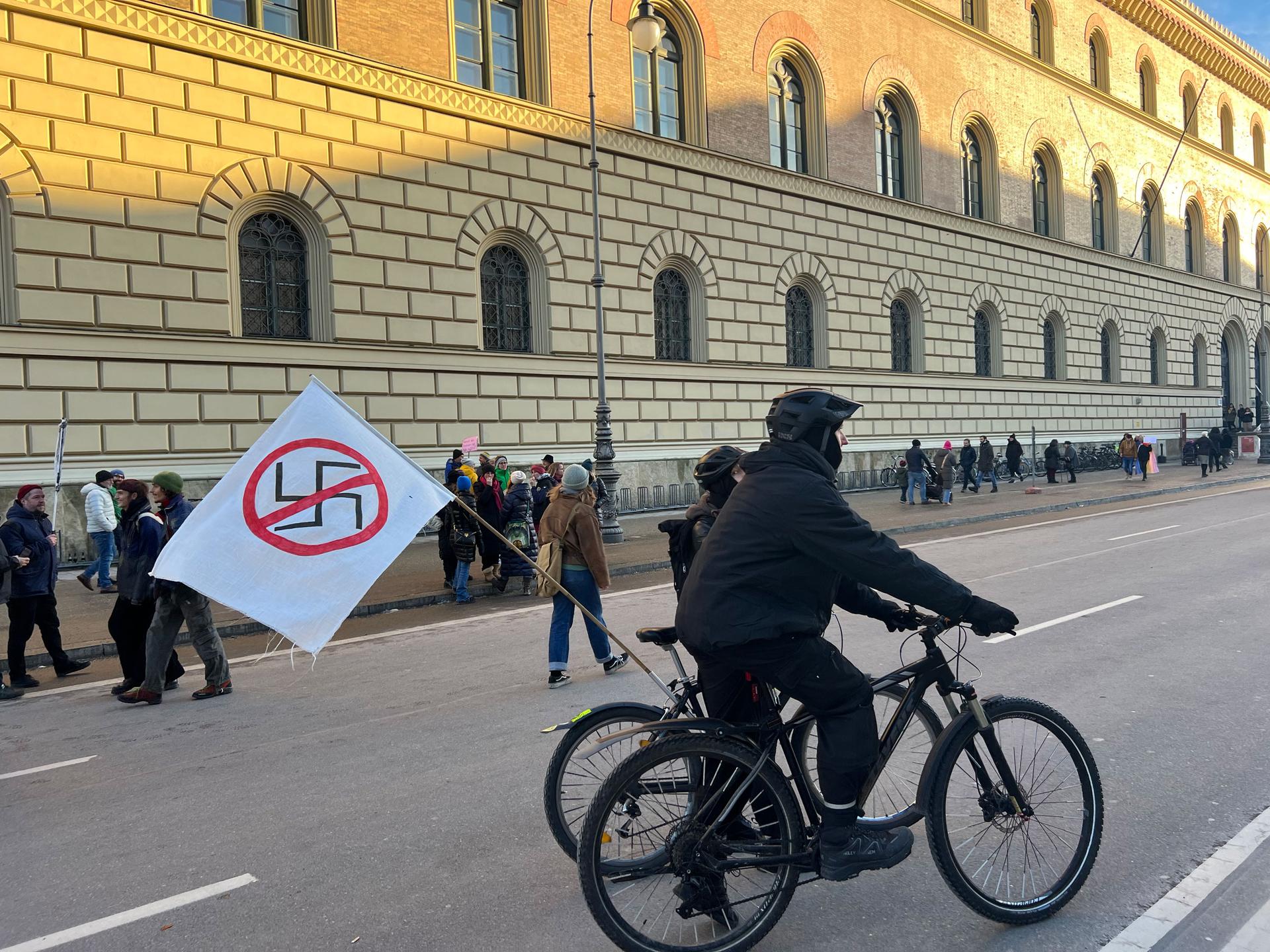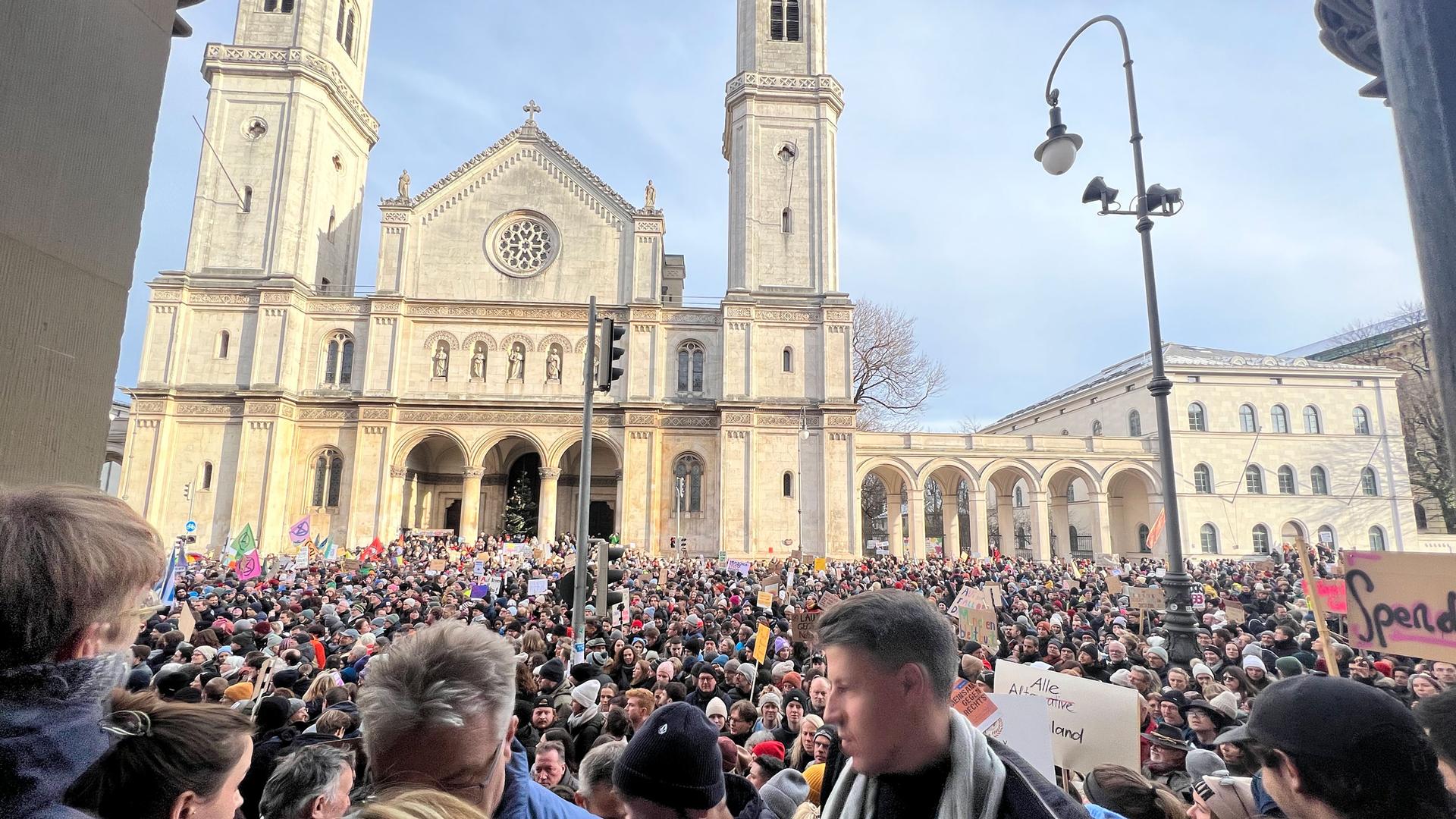Over the weekend in Germany, people took to the streets to denounce the AfD, the far-right party known as Alternative for Germany in English.
One of the largest protests was in Munich, with more than 100,000 people — according to police — marching on Ludwigstrasse, a grand boulevard that holds a lot of historical significance.
Odeonplatz, a large square at the southern end of the boulevard, was the site where Hitler’s first coup attempt, the violent Beerhall Putsch, ended in defeat in 1923.
Protests continued Friday through Sunday across Germany after an explosive investigation was published by the watchdog journalism nonprofit Correctiv. Reporters had staked out a hotel and slipped one journalist into the building during a secret meeting that brought together AfD members, neo-Nazis and members of more moderate conservative parties.

According to Correctiv, participants discussed a “master plan” of forced deportations, a policy known as “remigration.” There were specific details that entailed sending 2 million people to a “model state” in North Africa, including deporting German citizens.
“The scenarios sketched out in this hotel room in Potsdam all essentially boil down to one thing: people in Germany should be forcibly extradited if they have the wrong skin colour, the wrong parents, or aren’t sufficiently ‘assimilated’ into German culture,” the report reads.
The plan echoes a plan proposed by the Nazis in the 1930s to send Jews out of Europe and onto Madagascar.
The plan outraged protesters like Karolina, 34, who didn’t want to share her full name for privacy concerns. She said it was important for her to take to the streets to show “that the majority of the people are still against fascism and neo-nationalist tendencies that are happening right now in Germany.”

The country has seen a rise in far-right extremism in recent years. The AfD political party has gained legitimacy in the system, and now they have some support, but there’s also been talk of banning the party.
Germany already tried banning the NPD, another far-right party, but the effort failed in court in 2017 due to “a lack of evidence of successful implementation of its anti-constitutional goals.”
The revelations of an alleged policy goal to forcibly deport people based on racial characteristics or place of origin is adding weight to growing calls to ban or end government funding of the party — the government can shut off state funding of a party deemed anti-constitutional.

Meanwhile, Germany’s domestic intelligence agency is currently monitoring some AfD members, who say they are being victimized by the surveillance.
With three elections coming up in September in East Germany, polls are showing that the AfD is favored to win and their popularity extends beyond the East.
Protesters say those results are worrisome.
“I’m here to fight for democracy, for our rights at the far-right not getting any stronger,” said one protester named Fritz, who also didn’t want to share his full name for privacy concerns. “And to show that we are more than them because they are quite loud. So we have to be louder now, because now it’s the time.”
We want to hear your feedback so we can keep improving our website, theworld.org. Please fill out this quick survey and let us know your thoughts (your answers will be anonymous). Thanks for your time!
